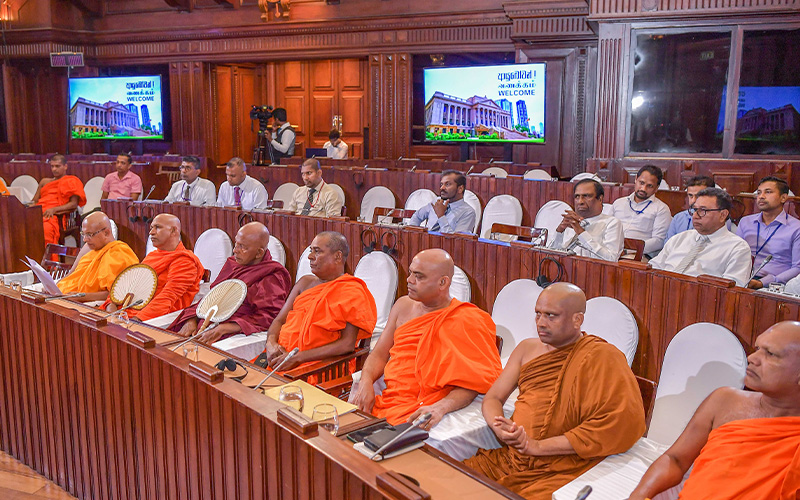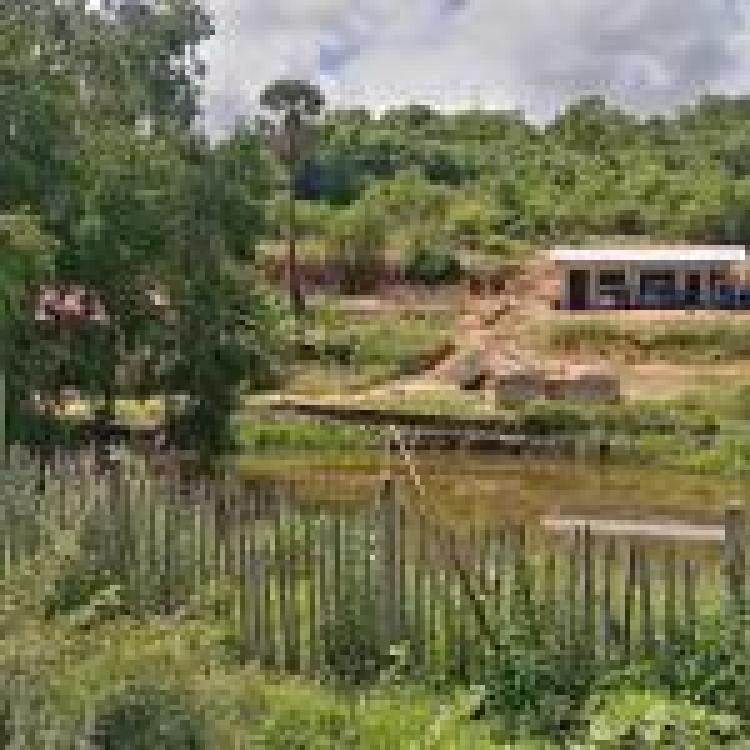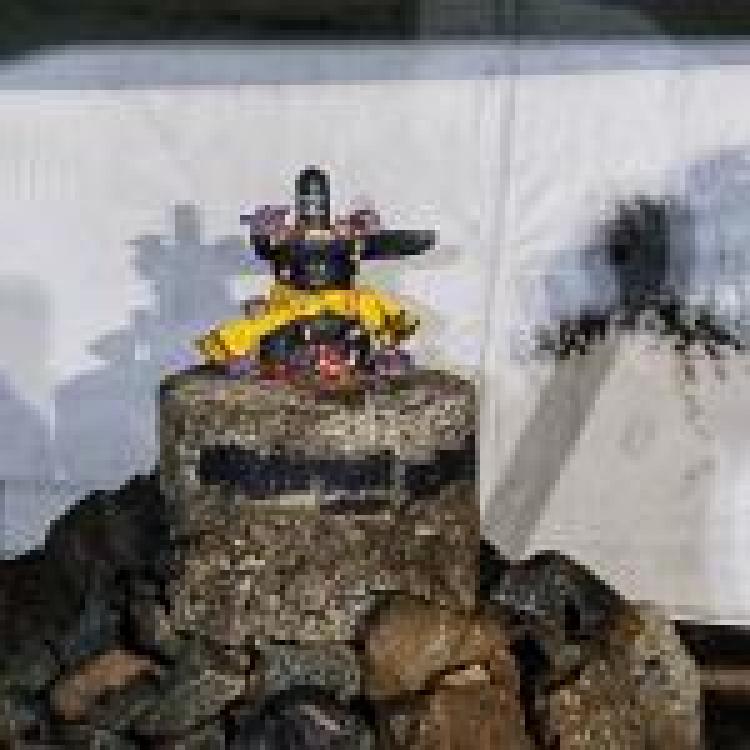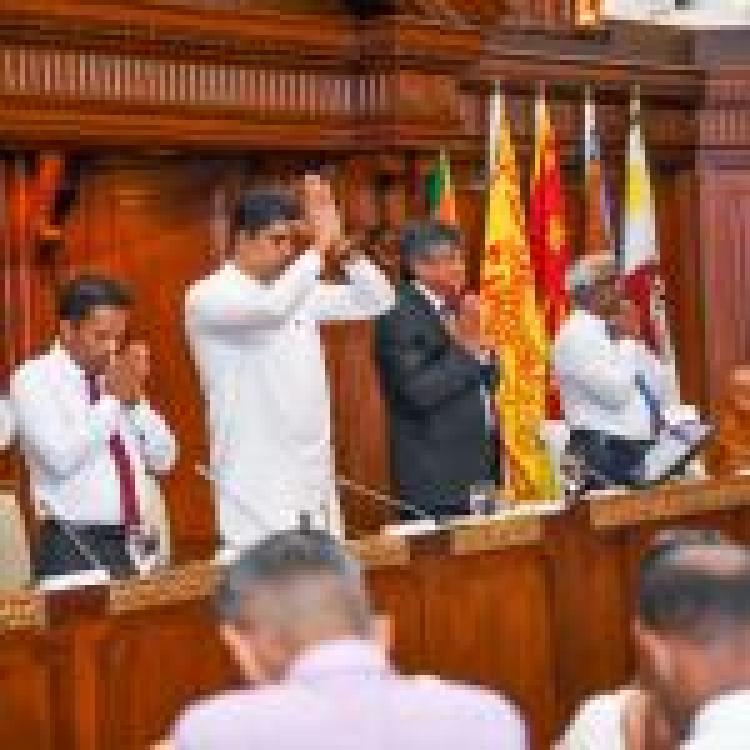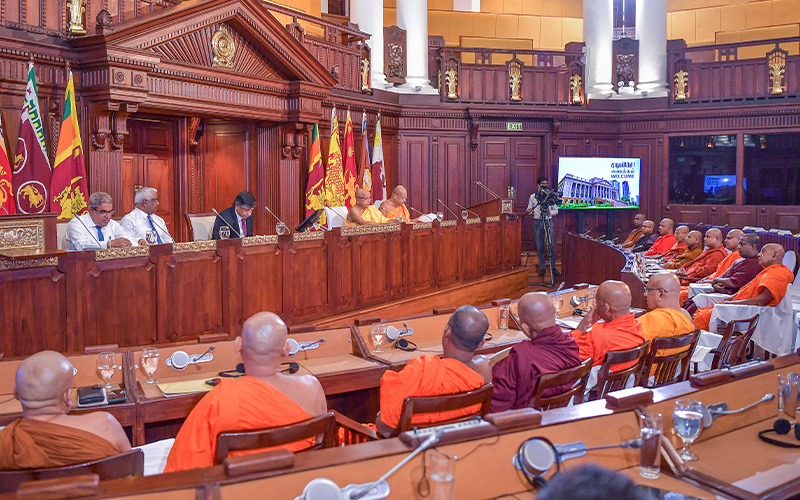
The All Ceylon Shasanarakshaka Bala Mandalaya presented a set of proposals last week, calling on the Sri Lankan government to ‘secure temple lands and safeguarding Theravada Buddhism nationally and internationally’.
The Buddhist monks presented the proposals to Secretary to the President, Saman Ekanayake, at the Presidential Secretariat and claimed there was a “nexus between diminishing religious education and the surge in societal crime”. The Sri Lankan President’s Media Division touted the proposals as an attempt to “foster a virtuous society”.
“Secretary to the Ministry of Buddha Shasana Religious and Cultural Affairs affirmed the alignment of proposals with existing laws and assured their submission to President Wickremesinghe,” the PMD noted.
In response to their requests, Ekanayake had mentioned the ongoing national programs and said that a committee will be formed to address their concerns and a report will be submitted to the Sri Lanka’s president Ranil Wickremesinghe.
This is not the first time that Sinhala Buddhist monks have urged Wickremesinghe to do more to “safeguard Buddhism” or “secure temple lands”. In February this year, Wickremesinghe committed to protecting and securing the 'Buddhist order' by declaring 11 Buddhist temples as 'sacred sites', of which four are in Tamil-speaking areas.
At an event held at the Presidential Secretariat, the National Physical Planning Department submitted documents relating to the 11 temples that have some "archaeological or historical significance" to be declared as sacred sites in the government gazette.
Ekanayake, who also hosted the event at the time, reportedly reaffirmed Wickremesinghe’s "unwavering commitment to upholding and protecting Buddhism in accordance with the Constitution".
Earlier this week, a Buddhist temple and statue that was illegally constructed on grounds belonging to a Hindu Temple was secretly inaugurated while the area was declared a vihara – or Buddhist place of worship.
Since the Mullivaikkal genocide and the end of the armed conflict in 2009, the Sri Lankan government have increased their efforts to colonise traditional Tamil areas, particularly under the guise of 'archaeology'. As a result, non-Buddhist sites have been appropriated by Sinhala Buddhists, causing Tamils to lose access to these religious and cultural sites.
In 2018, the United National Party (UNP), pledged to build 1000 Buddhist viharas in the Tamil homeland.
The initiative was announced in a UNP manifesto on a page titled 'Reconciliation'.
